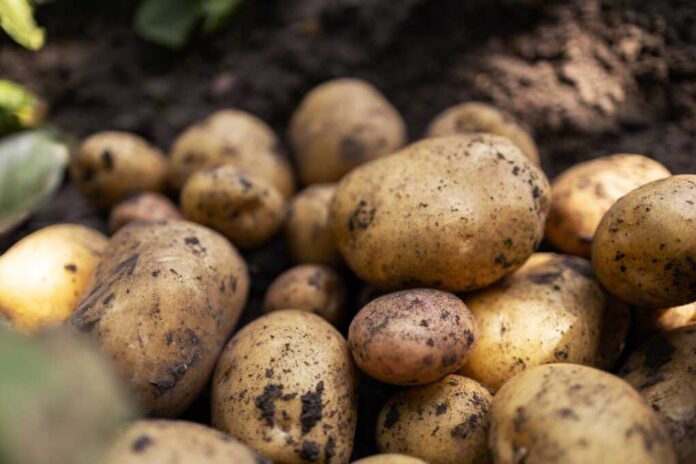
The humble potato, often overlooked as a simple starch, packs a surprising nutritional punch that can enhance your health while satisfying hunger without emptying your wallet.
At a Glance
- Potatoes provide essential nutrients including potassium, vitamin C, and B vitamins with relatively few calories
- The health benefits of potatoes largely depend on preparation methods—baking and boiling preserve nutrients better than frying
- Consuming potatoes with their skins maximizes fiber intake and nutritional value
- Potatoes contain resistant starch, which acts as a prebiotic to support gut health
- They’re economical, versatile, and can be stored for months in proper conditions
Nutritional Profile: More Than Just Carbs
Potatoes occupy a unique place in nutrition science—botanically classified as vegetables but nutritionally functioning primarily as carbohydrates. A medium russet potato with skin contains just 164 calories while providing 37g of carbohydrates, 5g of protein, and 4g of dietary fiber. This humble tuber delivers significant amounts of potassium (more than a banana), vitamin C, and several B vitamins that support energy metabolism and nervous system function.
Contrary to popular belief, potatoes themselves contain no unhealthy fats and are naturally sodium-free. Their bad reputation stems largely from common preparation methods rather than their inherent nutritional properties. The U.S. Department of Agriculture has recognized potatoes as among the “healthiest foods” when prepared appropriately.
Preparation Matters: How Cooking Affects Nutrition
The nutritional value of potatoes dramatically changes based on how they’re prepared. Baking, boiling, or steaming potatoes—especially with their skins intact—preserves most nutrients while adding minimal extra calories. Conversely, frying potatoes adds significant fat and calories, potentially negating many health benefits. Research has linked consumption of fried potatoes with increased risks of anxiety, depression, and type 2 diabetes.
For those watching blood sugar levels, it’s worth noting that potatoes do have a relatively high glycemic index. However, consuming them as part of a balanced meal with protein and healthy fats can mitigate rapid blood sugar spikes. Additionally, cooling potatoes after cooking (as in potato salad) increases their resistant starch content, which helps moderate blood sugar responses and functions as a prebiotic fiber for gut health.
Potato Varieties and Culinary Applications
Different potato varieties offer unique culinary properties suited to specific dishes. Waxy potatoes like red-skinned and fingerlings hold their shape when cooked, making them ideal for roasting, boiling, and potato salads. Starchy varieties like russets break down more easily, creating the fluffy texture perfect for mashed potatoes or the crispy exterior desired in baked potatoes and fries.
A simple kitchen hack can improve both the texture and nutrition of your potato dishes. Soaking cut potatoes in cool water with a pinch of salt for 30 minutes before cooking reduces their starch content, resulting in crispier roasted potatoes and french fries with less oil absorption. This technique also helps preserve nutrients that might otherwise be lost during high-heat cooking.
Storage and Sustainability
Potatoes represent an economical and sustainable food choice, with a remarkably low environmental footprint compared to many other foods. When stored properly in a cool, dark, and dry location (but not refrigerated), potatoes can last up to three months—far longer than most fresh produce. This extended shelf life reduces food waste and makes them a practical staple for budget-conscious households seeking nutritious options.
As the number one vegetable crop in the United States, potatoes contribute significantly to food security worldwide. Their ability to grow in diverse climates and soil conditions has made them a global dietary staple that crosses cultural boundaries. From Indian aloo gobi to French gratin dauphinois, potatoes have earned their place in cuisines around the world not just for their versatility and taste, but for their nutritional contributions to everyday meals.


















